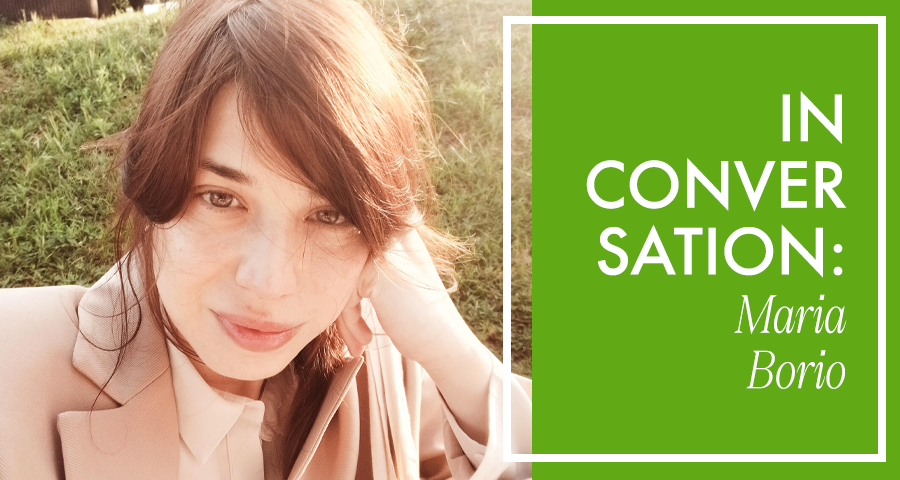Plunging into poet and literary historian Maria Borio’s Italian-language collection, Trasparenza (2019), one finds a riveting poetic study on the human gaze, dis/connections of touch, and visual intimacies of modernity. This collection was later brought to the Anglosphere as Transparencies (2022/2025) in Danielle Pieratti’s translation for World Poetry Books. In Braci: La poesia italiana contemporanea (2021), the celebrated scholar Arnaldo Colasanti painted an intriguing portraiture of Trasparenza, describing a blend of the pure and the impure, like the digital screen, an evocation of the imagistic clarity of snow and glass, ether and windows. For Colasanti, Trasparenza reveals desire only for it to be erased and emptied. However, he cautions against reading Dr. Borio’s poetry merely as abstract and argues instead that her work presents a resistance against the concrete, existing in a space that is tactile yet fleeting, spiriting language away towards solitude, lyrical disunity, and oblivion.
In this conversation thoughtfully translated from the Italian into English by Danielle Pieratti, I spoke with Dr. Borio, currently in the central Italian city of Perugia, on her poetry collections, particularly Trasparenza (Transparencies), and the poets and critics that define the Italian lyric tradition.
Alton Melvar M Dapanas (AMMD): Your debut into the Anglosphere, Transparencies (trans. Danielle Pieratti, World Poetry Books, 2022), saw a re-edition in May 2025. Could you tell us what your creative ethos was when writing the poems in Trasparenza (2019)?
Maria Borio (MB): The English translation of Trasparenza led to a book that is slightly different from the Italian original; in fact, we even reconsidered the order of the poems and their division into sections. I would say that it became a transcontinental collection or, if you could call it this, a form of transatlantic poetry. I believe that the book’s core—thinking about transparence in our time—resonated naturally in response to these changes. How can poetry represent certain issues pertaining to those who live in the Western part of the planet—a realm in the midst of redefinition? Transparence connotes our relationships, real and mediated, as well as our way of living, of constructing, of being in the world. Isn’t the language of algorithms also presented as transparent? And can’t we say the same about AI? With one provision: taking care to avoid reducing our relationships and actions to a surface-lacking substance, which has only instrumental ends. From Italian to English, therefore, the book’s interrogation of these problems intensified: how do we avoid making transparence a double game? How do we prevent ourselves from getting caught up in common sense, or slipping into hypocrisy (even when we need it to survive…), or forgetting what responsibility means—and not just responsibility to ourselves.
AMMD: Looking back at your first poetry collection, L’altro limite (2017), and then to Trasparenza, what would you say are the most notable shifts in your poetic vision and approach to writing? READ MORE…

